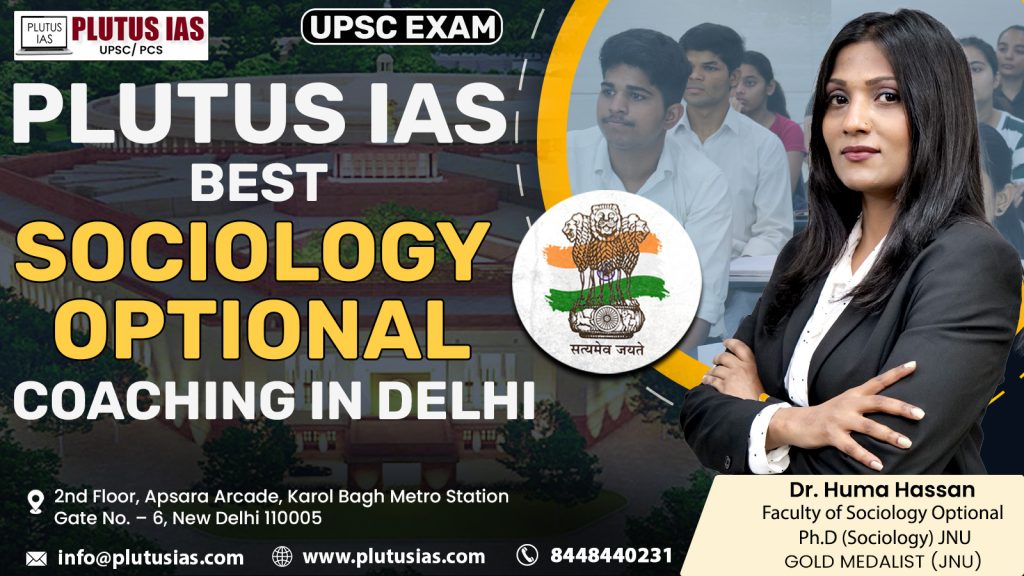
Address:
706 1st Floor Dr. Mukherjee Nagar Near Batra Cinema Delhi – 110009
City:Delhi
Vendor Type:Service Provider
If you’re thinking about selecting Sociology as your optional subject for the UPSC Civil Services Exam, here are some important points and resources to aid in your preparation:
Advantages of Choosing Sociology
- Interdisciplinary Approach: Sociology incorporates concepts from various fields, making it applicable to General Studies papers.
- Understanding Social Dynamics: It provides insights into social structures, relationships, and issues, which can be valuable for essay writing and interviews.
- Concise Syllabus: The syllabus is relatively shorter compared to other subjects, allowing for more focused study.
Overview of the Syllabus
- Sociological Theories: Key sociological perspectives, such as functionalism, conflict theory, and symbolic interactionism.
- Research Methods: Various research methodologies used in sociology, including qualitative and quantitative techniques.
- Social Institutions: Examination of family, religion, education, and economy, along with their societal roles.
- Social Change and Development: Influences on social change and the effects of globalization.
- Social Stratification: Concepts related to caste, class, and gender, and their societal implications.
Preparation Tips
- Standard Textbooks:
- “Sociology: Themes and Perspectives” by Haralambos and Holborn.
- “Indian Society” by Ram Ahuja.
- “Sociology for the UPSC Civil Services Examination” by R. S. Sharma.
- NCERT Books: Begin with NCERT textbooks for foundational knowledge, particularly for Class 11 and 12 Sociology.
- Online Courses:
- Platforms such as Unacademy, BYJU’S, and Vision IAS offer dedicated courses for Sociology optional, providing structured content and expert support.
- Consistent Revision: Create concise notes for quick reviews and practice answer writing regularly to enhance your articulation skills.
- Previous Years’ Papers: Work on past years’ question papers to familiarize yourself with the exam format and the types of questions commonly asked.
Additional Resources
- Sociology Blogs and YouTube Channels: Follow educators and content creators who focus on sociology for more insights and explanations.
- Study Groups: Join or create study groups to discuss topics and share ideas, which can deepen your understanding.
